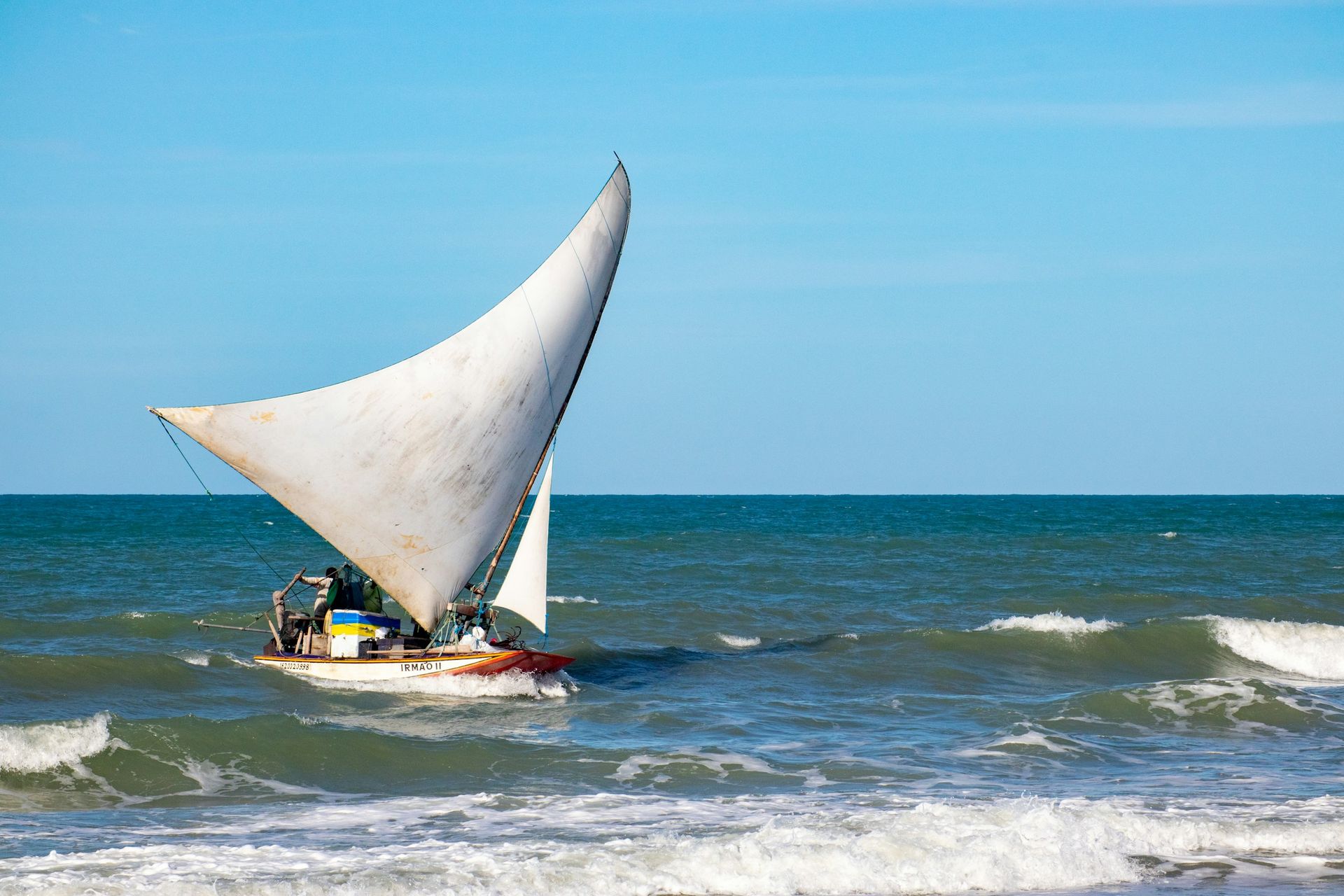
general information
Estimate Nominal GDP
(2025) $ 4.27 trillion
Estimate GDP from the Ocean Economy
(2021) 4% of total GDP
General Coastline
approximately 7,367 km
Estimate Population
1.428.627.663
Registered In-Country Companies
over 1.5 million
UN Global Compact Participants by April 2025
2012

overview
Brazil presents a strong foundation for advancing ocean sustainability, with one of the largest UN Global Compact Networks and an active Ocean Business Working Group. The Scoping Phase identified pathways for decarbonizing maritime and port industries and enhancing ocean stewardship. Despite strong private sector engagement and a pro-environment government, challenges include outdated infrastructure, regulatory gaps, oil and gas dependence, and weak safety standards. Key opportunities include synergies between green ports and offshore wind, improving safety on bulk carriers, and Brazil’s COP 30 leadership. The initiative prioritizes Shipping & Ports to drive innovation, governance, and sustainable blue economy growth.
Advancing a Safe and Sustainable Ocean Economy in Brazil
In the report delivered during the Ocean Centres’ Scoping Phase, UN Global Compact Brazil identified key pathways for decarbonizing maritime and port industries, based on extensive consultations with the business community. The report also highlighted opportunities to foster ocean stewardship across sectors.
To scale Brazil’s ocean economy, several persistent barriers must be addressed: inadequate infrastructure, low investment in sustainable technologies, and regulatory gaps. Environmental pressures such as overfishing, marine pollution, and climate change continue to impact marine ecosystems. A lack of coordinated public-private collaboration further slows progress toward integrated ocean management and sustainable development.
Despite these challenges, Brazil holds significant potential. Its vast marine biodiversity and abundant offshore renewable energy resources position the country to lead in sustainable ocean growth. Strengthening partnerships and fostering innovation in blue economy sectors can spur job creation, economic development, and environmental preservation. International cooperation and knowledge-sharing can also reinforce Brazil’s leadership in global ocean stewardship.

A key insight from the Scoping Phase was the strong synergy between green ports and offshore wind energy – an unexpected but promising opportunity to accelerate decarbonization. This connection, identified during discussions within the Framework for Action and the Ocean Business Working Group, will be further explored in upcoming workshops focused on integrated solutions for a safe and sustainable ocean economy.
Safety remains a critical concern. Challenges include outdated regulations, limited training, weak enforcement of standards, and poor coordination among stakeholders. Climate-related hazards such as extreme weather events further threaten operational safety.
However, clear opportunities exist. Adopting advanced technologies and aligning with global best practices can raise safety standards. Investment in training, capacity-building, and regulatory improvements will empower workers, reduce risks, and boost investor confidence – enhancing Brazil’s competitiveness in the global blue economy.
The priorities of Brazil’s Ocean Centres across the four Action Areas are ranked as follows:
1
Shipping &
Ports
2
Finance &
Investment
3
Offshore
Renewables
4
Fishing & Aquaculture
Nationally, the initiative seeks to improve ocean governance, promote sustainable practices, and drive innovation in key sectors. Greater stakeholder collaboration will support environmental protection, inclusive growth, and climate resilience – positioning Brazil as a global leader in the blue economy.
Collectively, the Ocean Centres will foster global alignment on sustainable ocean practices, strengthen knowledge-sharing, and catalyze cross-sector partnerships. By addressing shared challenges and leveraging opportunities, the initiative will contribute to healthier oceans, equitable growth, and a more resilient global ocean economy.
We believe that, at a global level, the Ocean Centres initiative will strengthen food security, port efficiency, clean energy development, and biodiversity protection. As hubs for sustainable ocean stewardship, they will drive long-term economic and environmental benefits through collaboration, innovation, and investment.
OCEAN CENTRES, brazil
local guidances
Shipping & Ports
Fishing & Aquaculture
Offshore Renewables
Finance & Investment
local news
List of Services
-
Com nova frota sustentável, Itapoá evita consumo de 1,2 milhão de litros de combustível BrazilCom nova frota sustentável, Itapoá evita consumo de 1,2 milhão de litros de combustível
-
EPE debate seleção de áreas e avanço da transmissão no Fórum Brasil–Reino Unido de Eólica Offshore BrazilEPE debate seleção de áreas e avanço da transmissão no Fórum Brasil–Reino Unido de Eólica Offshore
-
FAO e Banco Mundial destacam a importância da Transformação Azul e da Economia Azul em projetos na América Latina e no Caribe BrazilFAO e Banco Mundial destacam a importância da Transformação Azul e da Economia Azul em projetos na América Latina e no Caribe
-
Imo aprova novo pacote regulatório para descarbonização do transporte marítimo internacional BrazilImo aprova novo pacote regulatório para descarbonização do transporte marítimo internacional
-
Navios elétricos: o futuro do transporte marítimo? BrazilNavios elétricos: o futuro do transporte marítimo?
-
O Global Wind Energy Council (GWEC) BrazilO Global Wind Energy Council (GWEC)
local Events
List of Services
-
1º Encontro Nacional sobre Pegada de Carbono na Aquicultura - SETEMBRO Brazil1º Encontro Nacional sobre Pegada de Carbono na Aquicultura - SETEMBRO
-
A Transição Energética e os Combustíveis Fósseis - maio BrazilA Transição Energética e os Combustíveis Fósseis - maio
-
Energy Summit 2025 - Rio de Janeiro BrazilEnergy Summit 2025 - Rio de Janeiro
-
Hydrogen Expo _ JUNHO BrazilHydrogen Expo _ JUNHO
-
Port Performance Summit BrazilPort Performance Summit




